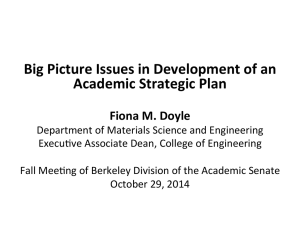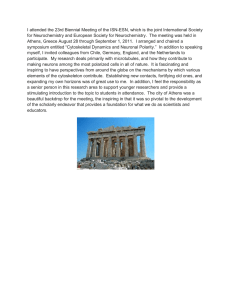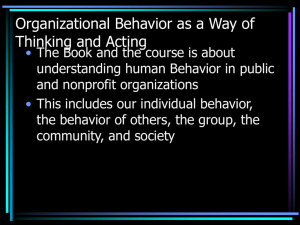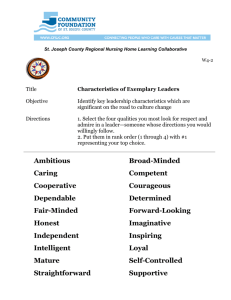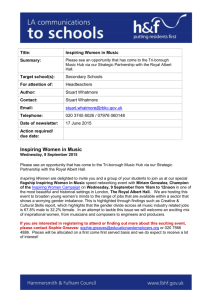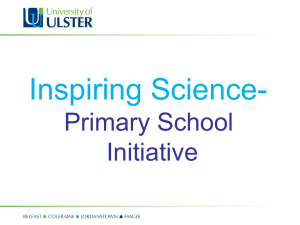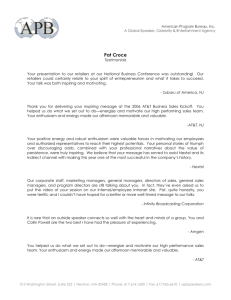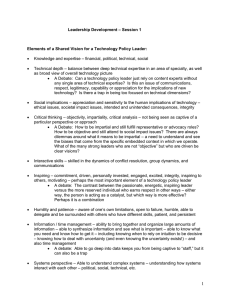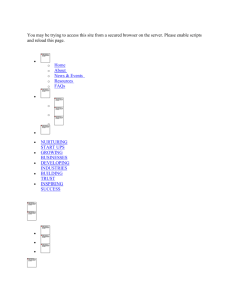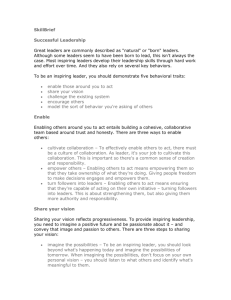IE 7 min summary - Parents for Choice in Education
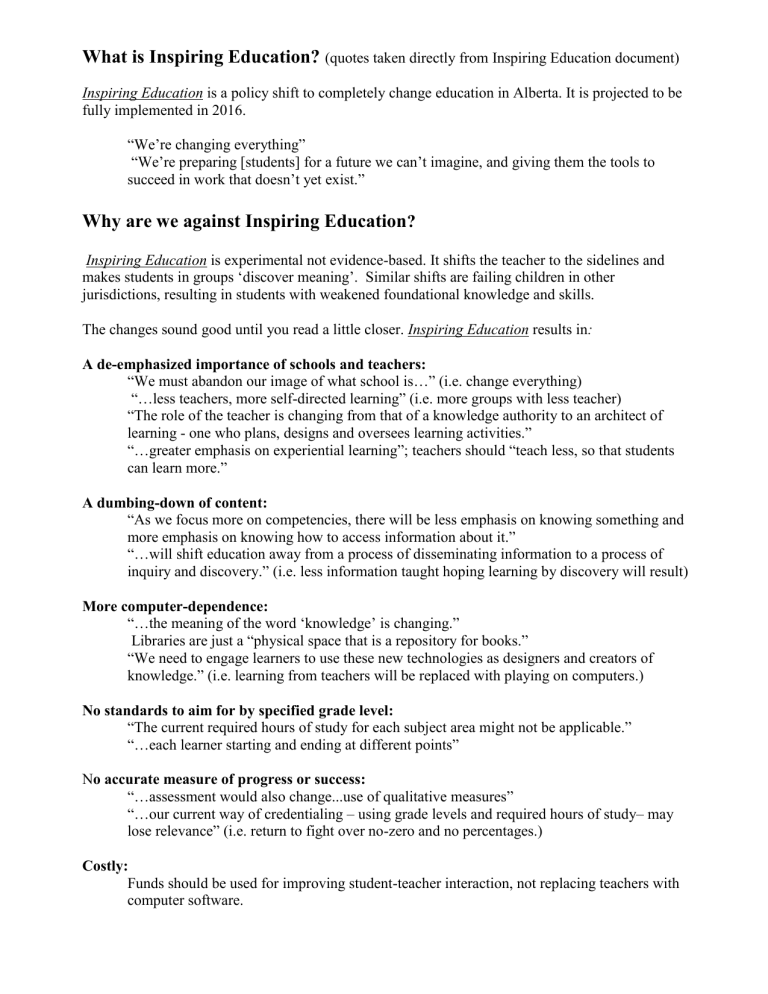
What is Inspiring Education?
(quotes taken directly from Inspiring Education document)
Inspiring Education is a policy shift to completely change education in Alberta. It is projected to be fully implemented in 2016.
“We’re changing everything”
“We’re preparing [students] for a future we can’t imagine, and giving them the tools to succeed in work that doesn’t yet exist.”
Why are we against Inspiring Education
?
Inspiring Education is experimental not evidence-based. It shifts the teacher to the sidelines and makes students in groups ‘discover meaning’. Similar shifts are failing children in other jurisdictions, resulting in students with weakened foundational knowledge and skills.
The changes sound good until you read a little closer. Inspiring Education results in :
A de-emphasized importance of schools and teachers:
“We must abandon our image of what school is…” (i.e. change everything)
“…less teachers, more self-directed learning” (i.e. more groups with less teacher)
“The role of the teacher is changing from that of a knowledge authority to an architect of learning - one who plans, designs and oversees learning activities.”
“…greater emphasis on experiential learning”; teachers should “teach less, so that students can learn more.”
A dumbing-down of content:
“As we focus more on competencies, there will be less emphasis on knowing something and more emphasis on knowing how to access information about it.”
“…will shift education away from a process of disseminating information to a process of inquiry and discovery.” (i.e. less information taught hoping learning by discovery will result)
More computer-dependence:
“…the meaning of the word ‘knowledge’ is changing.”
Libraries are just a “physical space that is a repository for books.”
“We need to engage learners to use these new technologies as designers and creators of knowledge.” (i.e. learning from teachers will be replaced with playing on computers.)
No standards to aim for by specified grade level:
“The current required hours of study for each subject area might not be applicable.”
“…each learner starting and ending at different points”
N o accurate measure of progress or success:
“…assessment would also change...use of qualitative measures”
“…our current way of credentialing – using grade levels and required hours of study– may lose relevance” (i.e. return to fight over no-zero and no percentages.)
Costly:
Funds should be used for improving student-teacher interaction, not replacing teachers with computer software.
